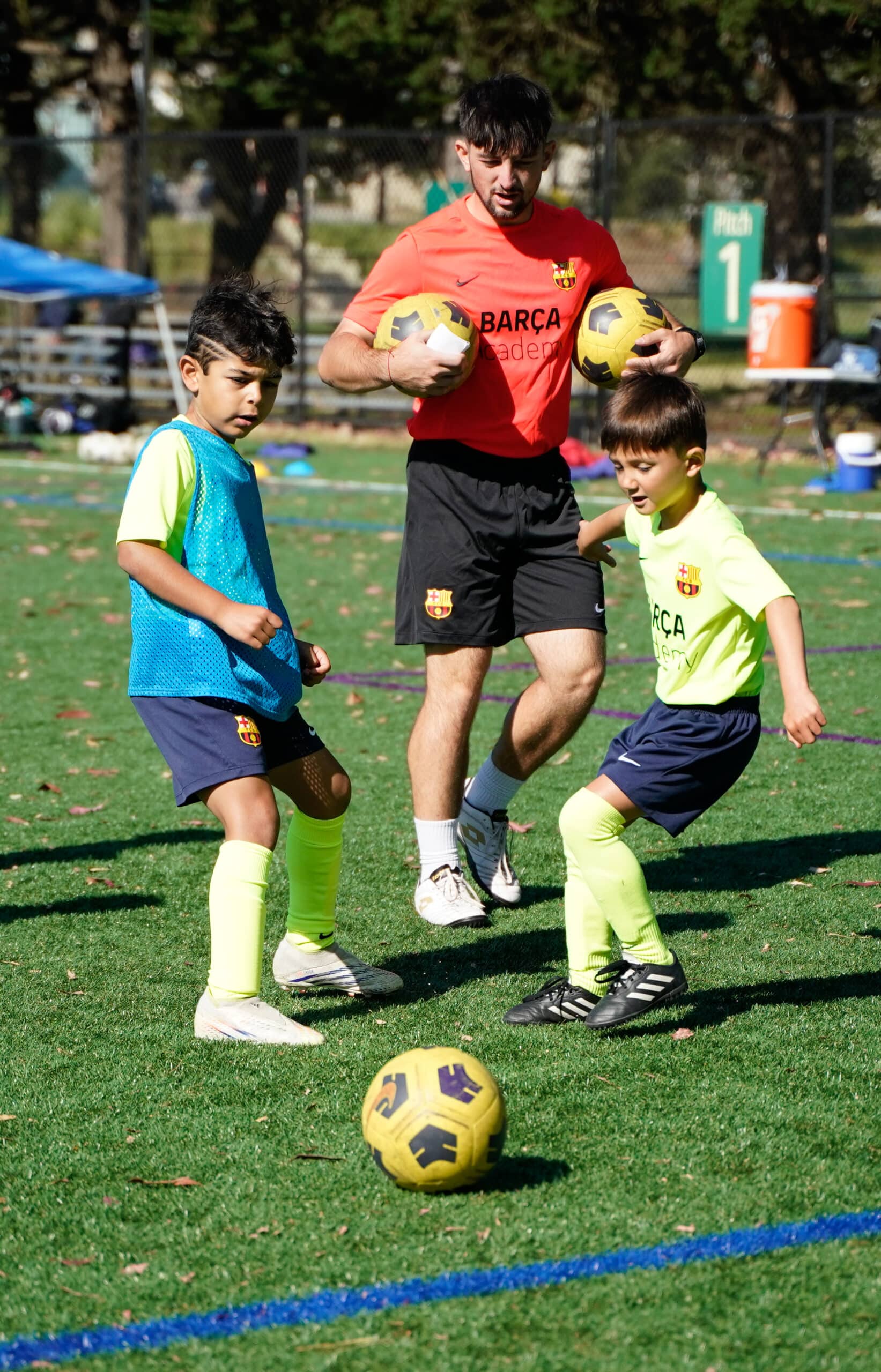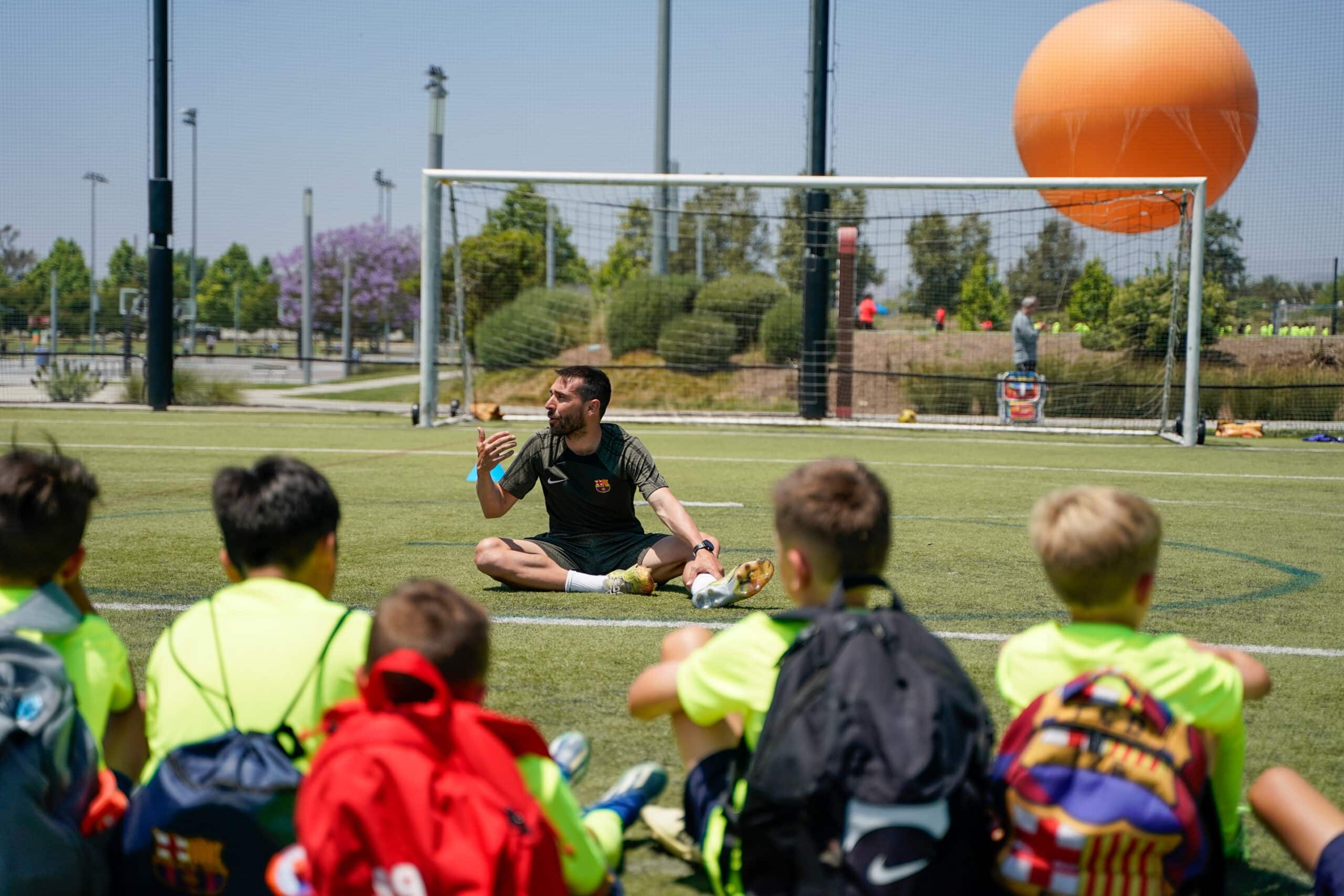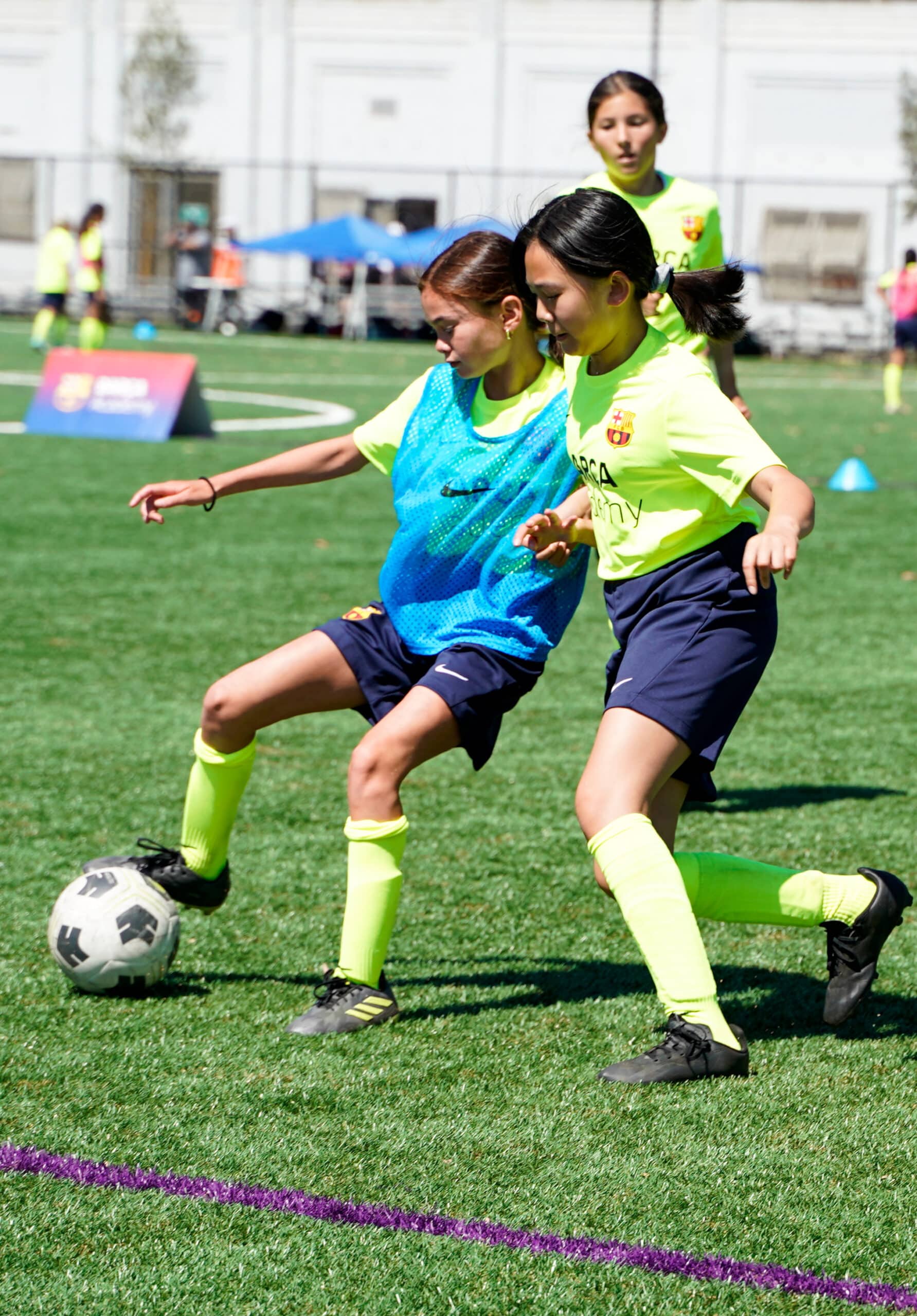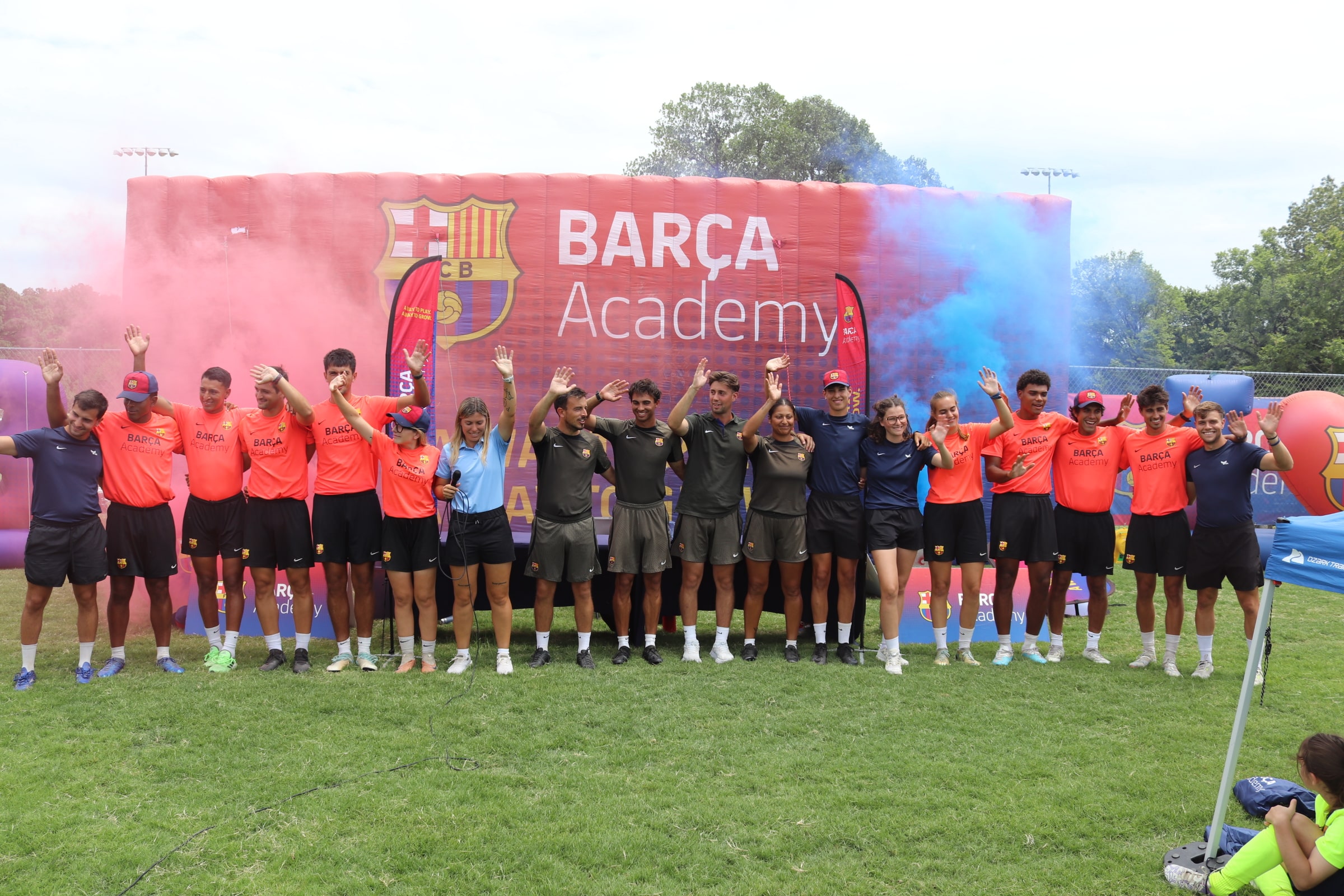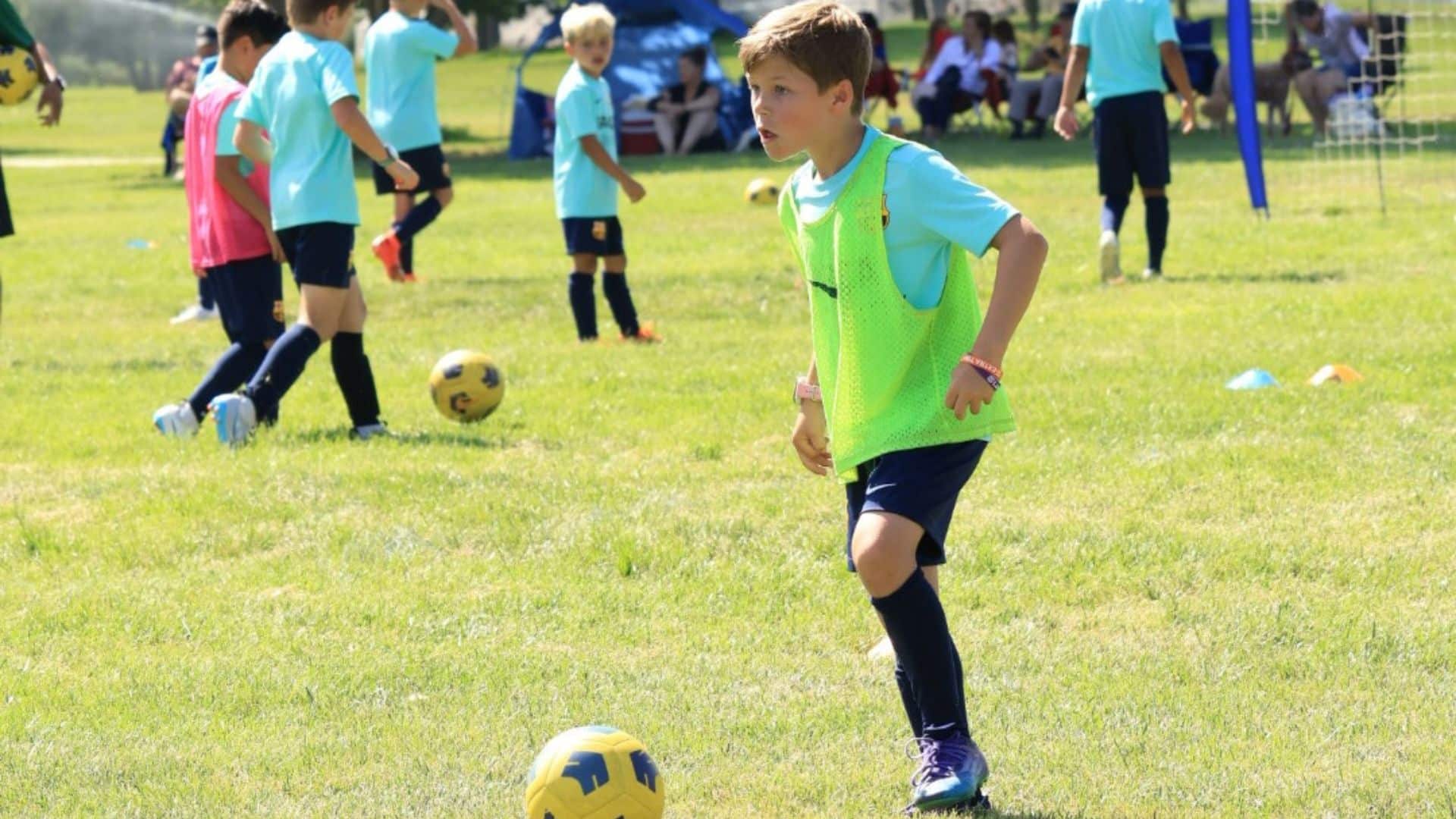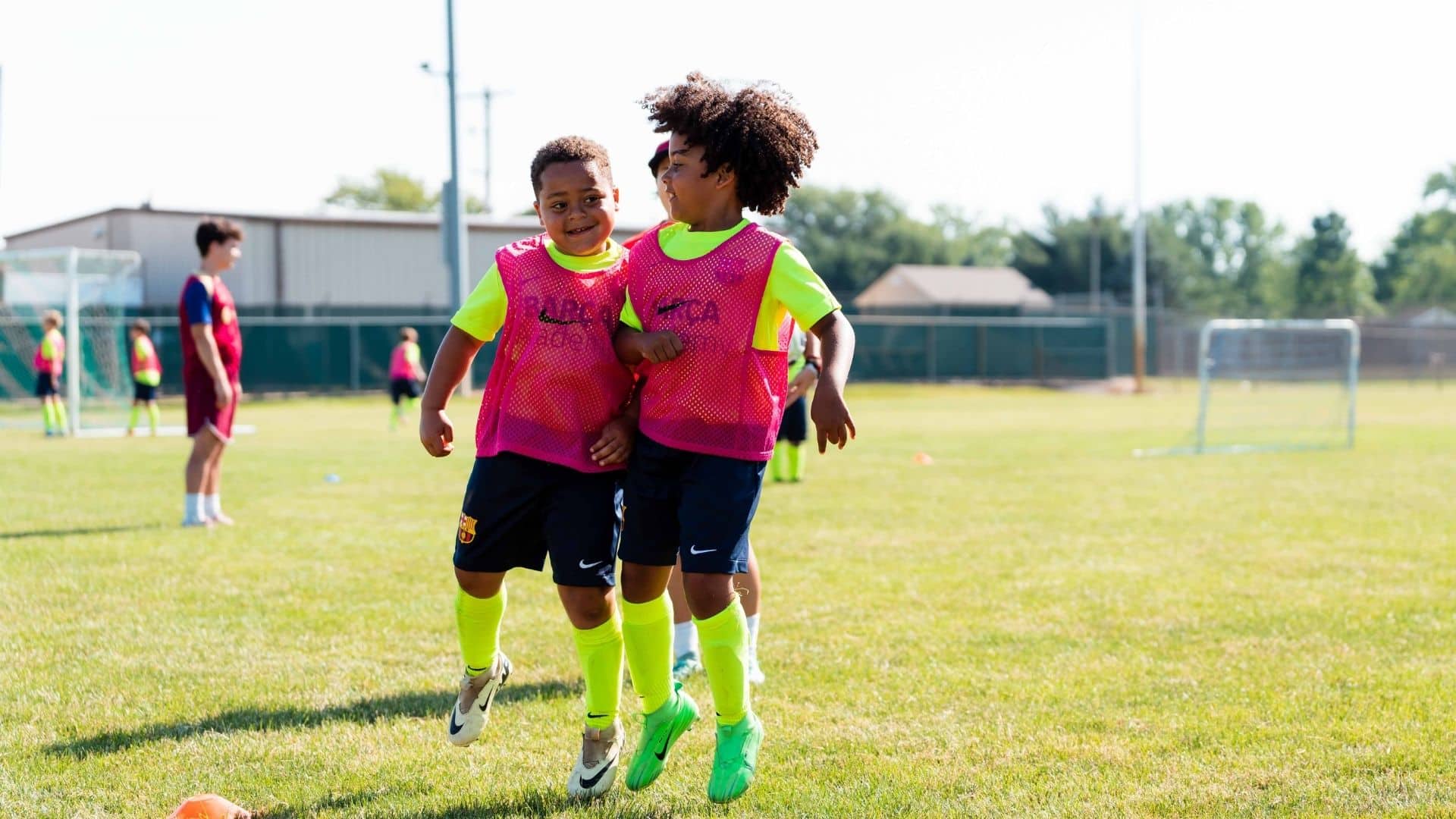Let’s talk about soccer. Now, we all know the exhilaration when the referee blows the starting whistle, the adrenaline rush of a well-executed play, the thrill of victory. But before all that, before the season officially kicks off, there’s something crucial that often gets overlooked: pre-season soccer training. Why is pre-season soccer training so important? you may ask. Well, let’s dive right in and find out.
Imagine diving into a soccer season without any preparation. Sounds like a recipe for disaster, right? That’s where pre-season training comes in. It’s the period that sets the foundation for the coming season. It allows players to build up their fitness levels, hone their skills, and understand team strategies. Pre-season training is vital because it ensures you’re in top form when the season begins.
Key components of an effective pre-season soccer training program

1. Individual skill development
First on our list is individual skill development. This is where players work on their personal skills such as dribbling, passing, and shooting. Each player needs to become a master of the ball, and pre-season is the perfect time to hone these skills.
2. Teamwork and strategy
After personal skills, we move on to teamwork and strategy. Soccer, after all, is a team sport. It’s crucial for players to learn how to work together to outmaneuver opponents. This includes understanding various formations, set-plays, and tactical approaches to the game.
3. Physical conditioning
Next in line is physical conditioning. The physical demands of soccer are intense, and being in top physical shape can make a world of difference on the pitch. Conditioning includes both cardio, for stamina, and strength training for those powerful shots and tackles.
4. Mental toughness
Don’t overlook the need for mental toughness in soccer. The ability to remain focused, composed, and positive in high-pressure situations is critical. Mental training in pre-season can include visualization exercises, mindfulness training, and lessons on sports psychology.
5. Nutrition and hydration
Last, but definitely not least, is nutrition and hydration. What players put into their bodies fuels their performance. Pre-season is the perfect time to learn about proper diet, hydration habits, and maybe even how to cook a few healthy meals!
You might be wondering how to put all of this together into one cohesive program. Well, the balance is key. Overdoing it in one area at the expense of others won’t yield the best results. A typical week might include two days of individual skill training, two days of team strategy, two days of physical conditioning, and one rest day for mental training and recovery. And of course, nutrition and hydration are an everyday affair.
And remember, each team and each player is unique. An effective pre-season training program is one that is tailored to the team’s and players’ specific needs and goals. Consult with coaches, trainers, and sports professionals to design the best program.
Essential soccer skills to develop during pre-season
You’ve made it to the pre-season, congratulations! Now is the perfect time to polish those soccer skills that will make you shine on the pitch. Here’s a list of vital abilities you’ll want to focus on for a successful season ahead.
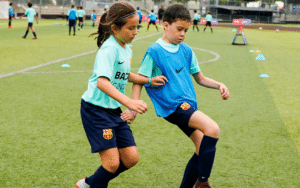
Ball control and dribbling
Ball control is the foundation of every great player. With excellent control, you can maintain possession, create opportunities for your team, and outmaneuver the opposition. You’ve seen how superstars like Messi and Ronaldo use their superb first touch to play the ball around defenders effortlessly. Aim for the same mastery with drills designed to improve your touch under various conditions.
Dribbling, on the other hand, is more about movement with the ball. A player who can dribble well can weave through defenders and open up the game for their team. Practice dribbling at different speeds, in different directions and under pressure to mirror match situations.
Passing and shooting
Let’s talk about two essential skills: passing and shooting. Passing is not just about getting the ball to your teammate; it’s about doing it accurately, at the right pace and into space. Drills that involve passing at various distances and angles will be beneficial.
As for shooting, it’s not just about raw power. Accuracy, technique, and decision-making often play a more significant role in whether you score or not. Work on your shooting skill from different positions, angles, and situations during your pre-season training.
Defensive skills
Don’t neglect your defensive skills. Even if you’re a striker, being able to win the ball back from opponents is invaluable. Practice your tackling, marking, and intercepting skills during pre-season. Remember, soccer is a team sport, and every player should contribute to both offensive and defensive play.
Physical fitness
Lastly, a player’s physical fitness is a crucial skill that often sets apart the good from the great. Stamina, speed, agility, and strength are key attributes that can give you an edge over your competitors. Make sure to include fitness training in your pre-season regimen to prepare your body for the rigors of the season.
Fitness and conditioning: the cornerstone of pre-season soccer training
Alright, let’s talk fitness and conditioning. It’s the bread and butter of any pre-season soccer training, don’t you think? So let’s dive right into why it’s so important and how to approach it.

Why fitness and conditioning?
Think of your body as a sports car. It’s sleek, it’s powerful, but it won’t run smoothly unless it’s well-maintained, right? Same concept. The rigors of a soccer season demand a lot from your body, which is why it’s paramount to enter the season fit and well-conditioned. This helps you perform at your peak, cope with the physical demands of the game, and reduce the risk of injury.
Components of fitness and conditioning
- Endurance: Soccer games are no walk in the park. They involve running for a good 90 minutes, so endurance training is key. Long-distance running, swimming, or cycling can help improve your cardiovascular endurance.
- Strength: Let’s face it, soccer is a contact sport. You need to be strong to hold off opponents, jump for headers, and shoot with power. Incorporate weightlifting and resistance training into your regimen.
- Speed and Agility: The ability to change direction swiftly and outpace opponents can be a real game changer. Plyometric exercises, sprints, and agility ladder drills are your friends here.
- Flexibility: Greater flexibility can improve your performance and decrease injury risk. Don’t forget to stretch before and after your workouts.
Pro tips for effective conditioning
Remember, conditioning is not a one-size-fits-all approach. It should be tailored to your personal needs and position requirements. For instance, a goalkeeper might need more strength and agility training, while a midfielder might focus on endurance.
Also, it’s important to gradually increase the intensity of your workouts to avoid burnout. The American College of Sports Medicine suggests a 10 percent rule: increase your workout intensity, frequency, or duration by no more than 10 percent per week.
Don’t forget recovery!
Lastly, but certainly not least, recovery is a critical part of conditioning. It allows your body to repair itself and get stronger. So make sure you’re getting enough sleep, eating nutritious food, and taking days off when needed.
Nutrition and hydration guidelines for pre-season soccer training
So, you’re gearing up for pre-season soccer training? Awesome! It’s going to be a challenging yet rewarding journey, I assure you. But before you dive in headfirst, let’s talk about something crucial – your fuel. Yes! I’m talking about your nutrition and hydration. It’s just as important as the training itself. Without the right fuel, your engine (that’s you!) won’t run efficiently. So, let’s get started, shall we?
Proper nutrition: more than just eating healthy
Let’s get one thing straight – when I say nutrition, I don’t just mean eating healthy. It’s way more than that. Think of your body as a high-performance car. It needs the right kind of fuel at the right time to function optimally. So, what are the essentials? Let’s break it down:
- Carbohydrates: These are your body’s main source of energy. Complex carbs like whole grains, fruits, and vegetables should be a significant part of your diet.
- Proteins: Proteins are the building blocks of your muscles. Lean meats, fish, eggs, and plant-based proteins are great sources.
- Fats: Yes, you read that right. Fats! Healthy fats like avocados, nuts, and seeds are essential for inflammation control and recovery.
- Vitamins and Minerals: Colorful fruits and veggies, dairy, and lean meats are packed with the essential vitamins and minerals your body needs to recover and stay healthy.
Remember, balance is key. So, make sure your meals have a good mix of all these nutrients.
Hydration: the often-overlooked aspect
Okay, now let’s talk about hydration. It’s often overlooked, but it’s a game-changer, trust me! Staying hydrated helps maintain your body temperature, lubricates your joints, and transports nutrients to give you energy and keep you healthy. If you’re dehydrated, your body can’t perform at its best.
So, how much should you drink? Well, a good rule of thumb is to drink at least half your body weight in ounces each day. And this should increase when you’re training. But remember, don’t wait until you’re thirsty to drink up. By then, you’re already dehydrated!
Timing matters
Last but not least, timing matters. A lot! Eat a balanced meal 2-3 hours before training to fuel up. If you’re training for a long time, drink fluids with electrolytes to stay hydrated. And most importantly, refuel within 30-60 minutes after training. This is when your body is most receptive to nutrients, and it’ll speed up your recovery.
As you can see, pre-season training is essential to prepare soccer players for the physical and mental demands of the upcoming season. Each team approaches pre-season training differently, but they all understand the importance of a comprehensive program that includes physical conditioning, technical and tactical training, and mental preparation.
So there you have it! Remember, a well-conditioned athlete is a successful athlete. Lace up those boots, and let’s get to training!







